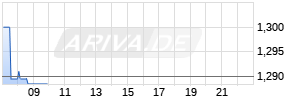
Precigen Announces Positive Phase 1 Data for Off-the-Shelf PRGN-2009 AdenoVerse™ Immunotherapy Alone and in Combination with an Investigational Checkpoint Inhibitor in Patients with Recurrent/Metastatic HPV-associated Cancers
PR Newswire
GERMANTOWN, Md., June 3, 2023
– PRGN-2009 combined with an investigational checkpoint inhibitor resulted in a 30% ORR in patients with heavily pre-treated HPV-associated cancers that were naïve or resistant to checkpoint blockade with prolonged duration of responses –
– Recurrent/metastatic HPV-associated cancers (cervical, anal, oropharyngeal, etc.) are incurable by current therapies –
– PRGN-2009 was safe and well-tolerated with only Grade 1 or 2 treatment related adverse events –
– PRGN-2009 treatment induced HPV-specific T-cell immune responses and subsequently enhanced T-cell responses with repeat administrations without the development of neutralizing antibodies in the majority of patients –
GERMANTOWN, Md., June 3, 2023 /PRNewswire/ -- Precigen, Inc. (Nasdaq: PGEN), a biopharmaceutical company specializing in the development of innovative gene and cell therapies to improve the lives of patients, today presented positive clinical data from the Phase 1 study of the off-the-shelf (OTS) PRGN-2009 AdenoVerse™ immunotherapy alone and in combination with an investigational anti-PDL1/TGF-Beta Trap checkpoint inhibitor (bintrafusp alfa) in patients with recurrent/metastatic (R/M) HPV-associated cancers (clinical trial identifier: NCT04432597) at the 2023 American Society of Clinical Oncology (ASCO) Annual Meeting (Abstract# 2628).
"Recurrent/metastatic HPV-associated cancers such as cervical, anal, and oropharyngeal are incurable by current therapies and there remains significant unmet need for new safe and effective treatments. Checkpoint inhibitors alone have shown some promise, but have not produced durable responses and many patients relapse or become resistant," said Helen Sabzevari, PhD, President and CEO of Precigen. "In our Phase 1 study, combining PRGN-2009 with checkpoint inhibition demonstrated a favorable safety profile and resulted in a 30% ORR with prolonged duration of responses in patients with heavily pre-treated HPV-associated cancers, including those who were checkpoint blockade resistant. We are highly encouraged by these Phase 1 data and, as we announced on May 31, we are moving rapidly to initiate a Phase 2 study to combine PRGN-2009 with a checkpoint inhibitor to further investigate safety and efficacy in recurrent or metastatic cervical cancer. This new trial is the second Phase 2 for PRGN-2009 AdenoVerse, adding to the ongoing Phase 2 in oropharyngeal squamous cell carcinoma."
PRGN-2009 is an OTS investigational immunotherapy utilizing the AdenoVerse platform designed to activate the immune system to recognize and target HPV-positive (HPV+) solid tumors. PRGN-2009 is a novel, replication-incompetent gorilla adenovirus targeting HPV 16/18. PRGN-2009 can be administered repeatedly leading to enhancement of T-cells without increasing neutralizing antibodies. PRGN-2009 is under development through a Cooperative Research and Development Agreement, or CRADA, within the Center for Immuno-Oncology (CIO), Center for Cancer Research (CCR), National Cancer Institute (NCI), part of the National Institutes of Health (NIH).
The Phase 1 trial is an open label, single-center study evaluating safety and response of PRGN-2009 as a monotherapy (Arm A) and in combination with bintrafusp alfa (Arm B) in previously treated adult patients with R/M HPV-associated cancers. In the monotherapy arm, patients (N = 6) enrolled in two sequential PRGN-2009 dose level cohorts, Dose Level 1 (1x1011 particle units (PU)) and Dose Level 2 (5x1011 PU) delivered via subcutaneous injection. In the combination arm, PRGN-2009 was administered at the recommended phase 2 dose (RP2D) in combination with bintrafusp alfa.
The primary objective of the study was to evaluate safety and RP2D of PRGN-2009 and safety of PRGN-2009 in combination with a checkpoint inhibitor. Secondary objectives included Objective Response Rate (ORR) (per RECIST 1.1), and progression free survival (PFS).
Patient Characteristics
Seventeen adult patients were enrolled in the Phase 1 study (Table 1). Patients received up to 20 doses of PRGN-2009 for a duration of 1.8 to 17.9 months in the monotherapy arm and 0.5 to 23.0 months in the combination arm. The median age in both arms was 61. The median number of prior lines of therapies in the metastatic setting was 2.5 for the monotherapy arm and 2 for the combination arm. All patients in the monotherapy arm (N=6) and 10 of 11 patients in the combination arm received prior immune checkpoint blockade (ICB) therapy.
| Table 1. Patient Demographics and Clinical Characteristics | ||||
| | ||||
| | Monotherapy Arm (N=6) | Combination Arm (N=11) | ||
| Age, years (median, range) | 61 (43-70) | 61 (54-80) | ||
| Female, n (%) | 6 (100) | 3 (27) | ||
| Tumor types (n,%) Oropharyngeal Cervical Anal Vaginal | - 3 (50.0) 2 (33.3) 1 (16.7) | 7 (63.6) 3 (27.3) 1 (9.1) - | ||
| HPV status (n, %) HPV16 HPV18 Other N/A | 3 (50) - 2 (33.3) 1 (16.7) | 9 (81.8) 1 (9.1) 1 (9.1) - | ||
| Previous lines of therapy in metastatic setting, median (range) | 2.5 (2-3) | 2 (1-4) | ||
| ICB exposure, n (%) Primary resistance Secondary resistance | 6 (100) 4 (66.7) 2 (33.3) | 10 (90.9) 5 (50) 5 (50) | ||
Safety Data
PRGN-2009 treatment in both monotherapy and combination arms was safe and well-tolerated (Table 2). In both study arms, there was a low incidence of treatment-related adverse events (TRAEs) with only Grade 1 or 2 TRAEs in the monotherapy arm. The most common TRAEs in the monotherapy arm were injection site reactions, flu-like symptoms, fatigue and rash. In addition to these in the combination arm, patients also experienced Grade 1 or 2 epistaxis, headache, keratoacanthoma, fever, decreased lymphocyte count, anemia and oral hemorrhage. TRAEs reported in the combination arm were in line with the safety profile reported for bintrafusp alfa and only Grade 1 or 2 TRAEs were attributable to PRGN-2009 in the combination arm.
| Table 2: Safety Data | ||||||||
| | ||||||||
| | Monotherapy Arm (N=6) | Combination Arm (N=11) | ||||||
| Treatment-related adverse events, n (%) | Grade 1-2 (all) | Grade 3-4 (all) | Grade 1-2 (≥10%) | Grade 3-4 (all) | ||||
| Injection site reactions | 4 (66.7) | 0 | 9 (81.8) | 0 | ||||
| Flu-like symptoms, | 3 (50.0) | 0 | 6 (54.5) | 0 | ||||
| Fatigue | 2 (33.3) | 0 | 3 (27.3) | 0 | ||||
| Rash, maculopapular | 1 (16.7) | 0 | 3 (27.3) | 0 | ||||
| Epistaxis | 0 | 0 | 3 (27.3) * | 0 | ||||
| Headache | 0 Werbung Mehr Nachrichten zur Precigen Aktie kostenlos abonnieren
E-Mail-Adresse
Bitte überprüfe deine die E-Mail-Adresse.
Benachrichtigungen von ARIVA.DE (Mit der Bestellung akzeptierst du die Datenschutzhinweise) -1  Vielen Dank, dass du dich für unseren Newsletter angemeldet hast. Du erhältst in Kürze eine E-Mail mit einem Aktivierungslink. Hinweis: ARIVA.DE veröffentlicht in dieser Rubrik Analysen, Kolumnen und Nachrichten aus verschiedenen Quellen. Die ARIVA.DE AG ist nicht verantwortlich für Inhalte, die erkennbar von Dritten in den „News“-Bereich dieser Webseite eingestellt worden sind, und macht sich diese nicht zu Eigen. Diese Inhalte sind insbesondere durch eine entsprechende „von“-Kennzeichnung unterhalb der Artikelüberschrift und/oder durch den Link „Um den vollständigen Artikel zu lesen, klicken Sie bitte hier.“ erkennbar; verantwortlich für diese Inhalte ist allein der genannte Dritte. Andere Nutzer interessierten sich auch für folgende News | |||||||




